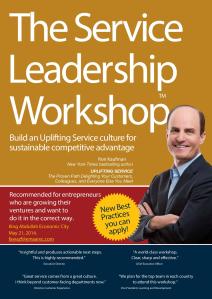From his international entrepreneurial ventures to his high-level technology venture advising, Athar’s uncommon viewpoints come from his uncommon experiences. His opinions do not necessarily reflect my own.
I have added a title and links to his response for ease of reading. The text is otherwise unchanged.
“Businesses owned by responsible and organized merchants shall eventually surpass those owned by wealthy rulers.”
– Ibn Khaldun on economic growth, opposing the ideals of Platonism.
It is hard to expand much after diverse comments and fruitful advice, from veterans Khalid Suleimani and Barig Siraj, or from younger folks like Moizuddin Muqri or Nermine Hassan. So I will take a different tack: Make international comparisons as they have evolved. By the way, I, too, am a PhD dropout.
Two Main Themes.
I have two main themes.
A. It is not about rejecting traditional education, but challenging lack of a motivational education. Today’s Middle East (and much other regional) infrastructure is emulated from Western and bureaucratic needs. Ultimately then, it is mostly informal (entrepreneurial) ways that advance local development.
B. Global entrepreneurship is rising not because of a narrow Silicon Valley model, but despite it, as there is a huge power shift going on, from mature Western markets (that still offer resources and skills) to emerging growth markets of the East (where addressing myriad issues by government and people are the differentiator.)
What we need is to drop into a new core curriculum education wise, and let informal ventures create themselves without excessive regulation. Then we shall witness large scale small business and entrepreneurial growth that has underpinned global growth contributing to solving world hunger and global peace, as new Silk Routes form all over.
Many Euphemisms, A Simple Meaning.
There are many related euphemisms: The Networked Economy, Globalization, Viral Marketing, The Big Idea, and others. But they all depend upon a certain societal mindset and a sense of the possible as conditions change.
After much Western economic research over the centuries, with complicated academic models and talk about Adam Smith’s mercantilism, rational interest, monetarism or Keynesianism, elite opinion is back to what the historian Ibn Khaldun, now considered the founder of economic social science, had talked about. This rediscovered, behavioral, idea is elegantly summarized in Animal Spirits (2009), by two Nobel Laureates, Schiller (known for accurately predicting the 2000 DotCom Crash and the 2008 Global Recession, still lingering) and Akerlof (spouse of Janet Yellen, current US Fed Reserve Chair.)
It is a shockingly simple idea that everyone feels but doesn’t articulate: When you are feeling positive and good, you are willing to take chances and engage in more activity, which overall, improves economic growth. Conversely sagging emotions have a net negative effect. That is why we all hear about (the need for) business confidence, an undefined, but understood, statement.
Confidence, again, comes from a belief in one’s ideology, a sense of morality and fairness, and a connection to past achievement. The West has thus evolved Core Curricula at its elite universities, a notion of advanced civilization and historical achievement that are constantly reinforced in public and media debates, think tank papers and books and magazines, however false they might be. As Marshall McLuhan famously observed: The Medium is the Message. The more you repeat the narrative in a certain way, the more it is likely to be accepted as the Truth.
What Went Wrong?
All students (foreign or local, engineering/science ones, or liberal arts majors) in the West are exposed to these core ideas, from (failed) Athenian Democracy, through the European Medieval, Middle, Reformation, Renaissance and Modern Ages, and how the West triumphed against the odds (and thus, will do so again, surely.) The narratives, however laughable, are ingrained for life. (Were the World Wars a struggle for freedom and justice by the Allies, or simply a blood and terror death match between two sets of equally savage colonial powers over world domination, costing 100 million lives in Europe alone? Has such colonial mindset reformed yet?) Of course Muslim, Chinese, African, Asian or other cultures are sub-texted as primitive and in dire need of (Western) reform, their cultural, scientific and literary contributions degraded.
Herein lays our fundamental, unarticulated problem: Most our Western educated graduates return with guilt and shame, determined to “modernize” their home societies by connecting with the West, but without an appreciation of their own values and strengths or local needs. This results in huge bureaucracies, in a quest for safe jobs with benefits, but with meager, usually highly negative, benefits to society. On the other hand, local education, a colonial era relic, is bifurcated: Engineers only learn narrow skills, liberal arts grads are exposed mostly to Western fantasies of appropriate civilization and etiquette, with calls for “modern reform.” Good books to read here are: The White Man’s Burden (2007), and Confessions of an Economic Hit Man (2006).
Countering Effect On Tech Ventures.
Such prevalence also spills over into otherwise good tech ventures as well: What good is a great app, when it is really hard to make people pay online? Or, what good is an online payment system that still depends upon a MasterCard/ Visa infrastructure, producing yet higher fees, and expanded control and market reach by not-so-friendly global corporations with their own agendas?
The fact is that all-loved social media like Facebook and Twitter are simply high tech versions of Big Brother global control infrastructure, as warned presciently by George Orwell in his book, 1984, and recently, by WikiLeaks and Edward Snowden. (Of course the Internet was commercialized only ten years later.)
We need to pre-empt such subtle strikes by creating local infrastructure, much like other countries (Russia, China, Brazil) are actively engaged in. Again this requires an overall spirit of comprehension.
Need For Reform.
The Middle East requires its own integrated core curriculum that advances its cause. In the current absence of this educational integration, many smart and inquiring students, sensing a clash with the real environment but lacking social clout, drop out. Some become entrepreneurs. Most are just lost.
Local education is in big need of reform, but government policies can take decades to execute. No wonder there are hundreds of thousands of just Saudi students in the US, Canada, UK and Europe. Their expectations are high, and they will all need to be absorbed locally over the next few years. New policies will need to account for both local and foreign graduates and provide them global internships and incubator opportunities with various industry co-sponsored programs to make use of their talent, upgrade skill sets and provide entrepreneurial space since not all can (or would want to) be employed by government or big companies. It is a challenge faced by all countries around the world, mature or emerging, but the successful solutions would all be localized and dependent upon pride in one self and a common vision.
Promoting Entrepreneurship: Learning From the Informal Economy.
So how do we collectively and individually promote job growth, aka, entrepreneurship?
I did mention some technology based directions in my earlier article, An International Strategist’s Perspective on Dreaming Big. But there must be broad based encouragement of entrepreneurship, and opportunities abound.
What is often neglected is true entrepreneurship that is taking place daily all around us: The rise of the informal economy, out of the neglected poor and middle classes, now a hot topic among global media and researchers. A sample study is Stealth of Nations (2011), where the journalist author chronicles the amazing rise of Nigeria’s informal economy to the point where Nigeria, despite several civil wars, is now Africa’s largest economy. He also details China’s rising trade and immigration with Nigeria (as with all of Africa), and also case studies distinct Latin economies (Brazil, Paraguay) progressing fast by exploiting various informal global niches, and their US trade, highlighting the linchpin role of Lebanese immigrants.
There are tales of the street vendor, the garbage men and women, high tech traders with creative business models and billion dollar informal market places, succeeding in spite of straitjacket official rules and lack of capital, yet creating hundreds thousands of productive jobs and social harmony. Around the globe, half of all jobs are now in the informal economy, from permanent war zones to highly structured London and Geneva.
These are stories well beyond that of China, with an incredible rise of 12% per annum GDP growth from 1978 ($300 per capita income) to today as the 2nd largest global economy. It is symbolic of how self confidence, over turning regulation and use of scale advantage, with promotion of local technology morphing into world class companies like Huawei, ZTE, Alibaba, SINA, Weibo, ICCI Bank, CNOOC Petroleum, that are marketing and fundraising globally, can reverse moribund, opium addicted and civil war ravaged nations into tomorrow’s super powers. China’s historically unprecedented feat of lifting 500 million people out of poverty in a generation has defied all Western notions of growth, free markets, politics or social norms, famously branded “socialism (or capitalism), with Chinese characteristics.”
Recalibrating Our Mindsets: Role Models and Learning.
With some effort and out-of-box thinking, many opportunities can become apparent. The Middle East, despite much despondency, is not without its unsung tech heroes and investors. Did you know, for example, that Steve Jobs, the Silicon Valley icon with a Syrian father, was a Reed College drop out, studying calligraphy (which shaped his technology aesthetic of perfection into world class innovation despite many failures all along after each of which he was left for dead)? Or, that he was partially funded by a now Riyadh based Saudi investor whose apartment Jobs used to sleep over at? (I bet you never imagined the second part!)
Jobs’s legendary competitor, Bill Gates, was a Harvard drop out. So was the Canadian born founder of Napster, which gave rise to hundreds of successful P2P ventures including Skype, with 300 million global subscribers (before being bought out by the corporatized Microsoft post-Gates, Skype had touched 600 million subscribers.) A good majority of tech entrepreneurs have been drop outs. In fact, Google founders, who pioneered their search engine during PhD work, are also fellow PhD drop outs. The main problem of such preponderance is dissatisfaction with the traditional education system that is geared toward corporate jobs and has become increasingly uninspiring. Most R&D in the US since the 1980s, including Internet commercialization, has actually come out of such start-ups or industry labs. Academic research has become stagnant, due to lack of creative outlet or competition among peer review boards, and faculty tenure. Thus emulating US education is certainly not the right way to promote local growth anywhere.
My earlier article above had highlighted major government successes and failures with new ventures. While Israel is touted to have a pioneering high tech industry around Herzliya, its grand failures must also be remembered as Goliath natured. Israel’s much touted Green Desert initiative beginning 1970s has been a $50+ billion failure, whose real track record has been carefully buried beneath magnificent PR and untold Western subsidies. Israel was producing 1 kg of wheat while consuming 1000 liters of Jordanian water, among other costs! Herzliya itself is a master show case of hidden subsidies, up to 85% of total costs, and complete dependence upon US and UK markets like the NASDAQ; scant progress has been made in a mix of miracles and mirages. Israeli Viber, sold recently for $900 million, depended upon the Arab market, showing that Arab ventures could do even better with the right mindset. Some lessons here.
Bottomline.
There is an excellent short report (Economist Special Report: Tech StartUps, Jan 2014) detailing technology entrepreneurship globally, from the US Silicon Valley, to China’s Shenzen corridor, to UK, Germany, EU, Asian and other innovation centers, with diverse business models, skill sets and government policies, that I encourage everyone to read. The point home is that it all is possible anywhere, as long you have the courage to start and are willing to take some risks to help yourself.
The Middle East is omitted in this report, but this to me is a positive sign: The future growth here is still unrecognized and innocent of loud PR and high valuations that would then lead to an inevitable correction. Fortunately this is the time to start up in the Gulf and grow.
Friends, what’s your reaction to Athar’s rejection of the Silicon Valley model and call for localized cultural core curricula? I look forward to reading your comments.







